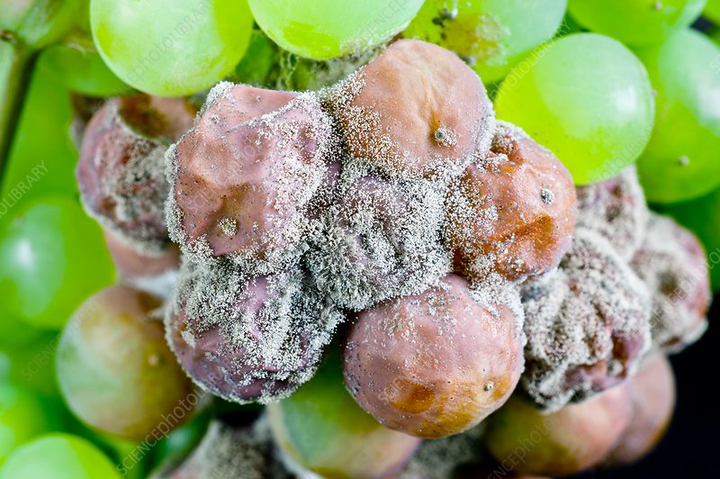On-farm trials reveal significant but uncertain control of botrytis cinerea by Aureobasidium pullulans and potassium bicarbonate in organic grapevines

Abstract
Botrytis cinerea, a fungal pathogen that causes gray mold on grapes, can decrease yield, substantially reduce wine quality, and therefore cause significant economic losses. In a context of increasing awareness of environmental and human health, biopesticides are a potential alternative to synthetic chemical treatments to produce grapes and wine in compliance with high food standards. However, the effectiveness of biopesticides is not well known and more research is needed to help winegrowers assess their ability to control wine diseases. Our study aims to assess the efficacy of two commercial biopesticides, based on potassium bicarbonate and Aureobasidium pullulans, in reducing the incidence of gray mold (i.e., the proportion of grape bunches that are diseased). We use data from an on-farm trial network managed over 3 years (from 2014 to 2016) in a major wine producing region located in Southwestern France, and fit Bayesian generalized linear multilevel models able to take the variability of treatment effect across trials into account. The fitted models were then used to estimate the efficacy on incidence as a function of the severity (i.e., the proportion of diseased grape berries in a bunch) in an untreated plot in order to determine if the effectiveness of the treatments depends on the disease pressure. At average disease severity (i.e., 3%), the efficacy on disease incidence at the network level was equal to 20% [95% CI = (−0.1; 37.3)] and 13% [95% CI = (0.2; 24.7)] for potassium bicarbonate and A. pullulans, respectively. For both biopesticides, the efficacy on incidence for a new site-year is highly uncertain, but potassium bicarbonate had a lower uncertainty and a lower application cost compared to A. pullulans. Our results confirm that potassium bicarbonate is an interesting biopesticide under farming conditions in organic vineyards in southwestern France, but the amount of uncertainty points to the need for further research. photo credit Dr J. Burgess/Science Photo Library